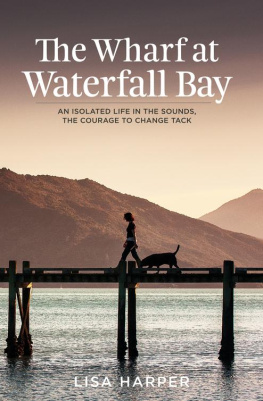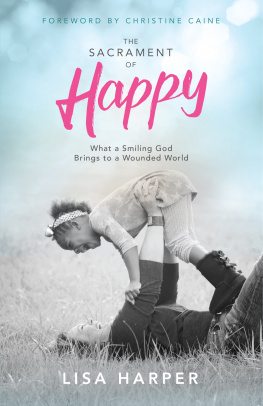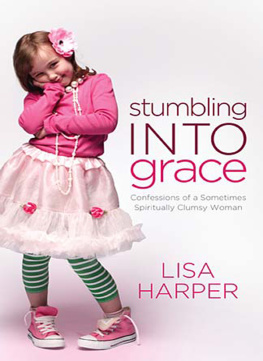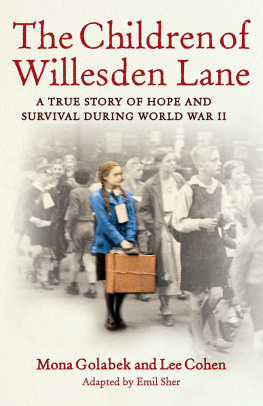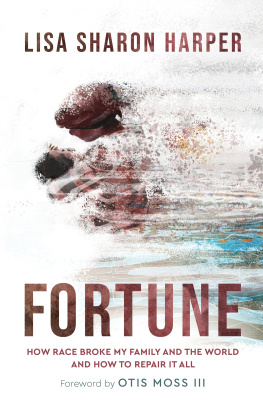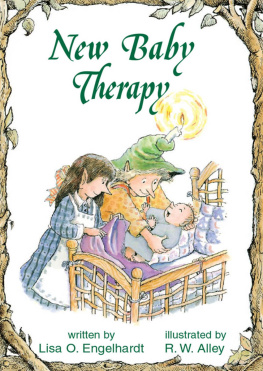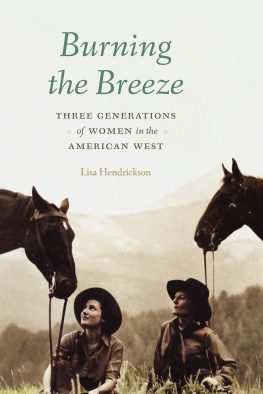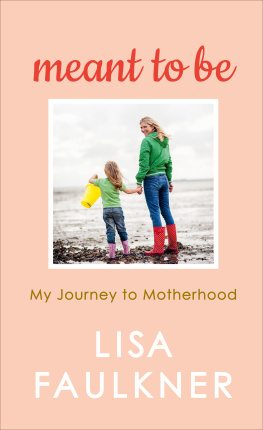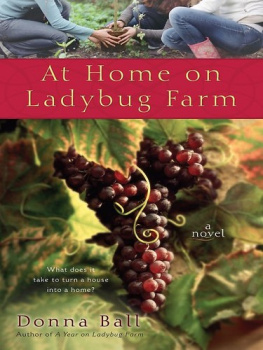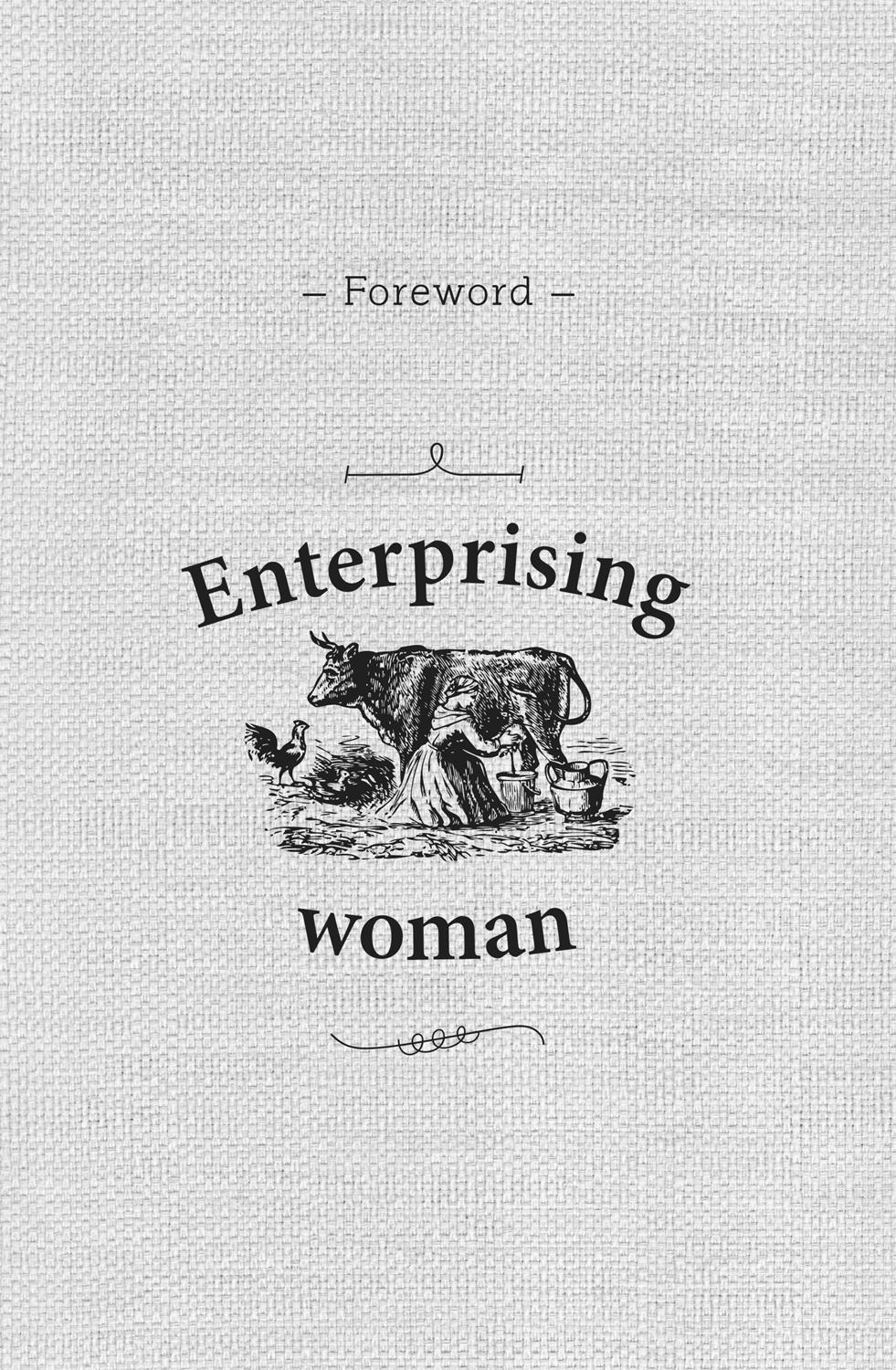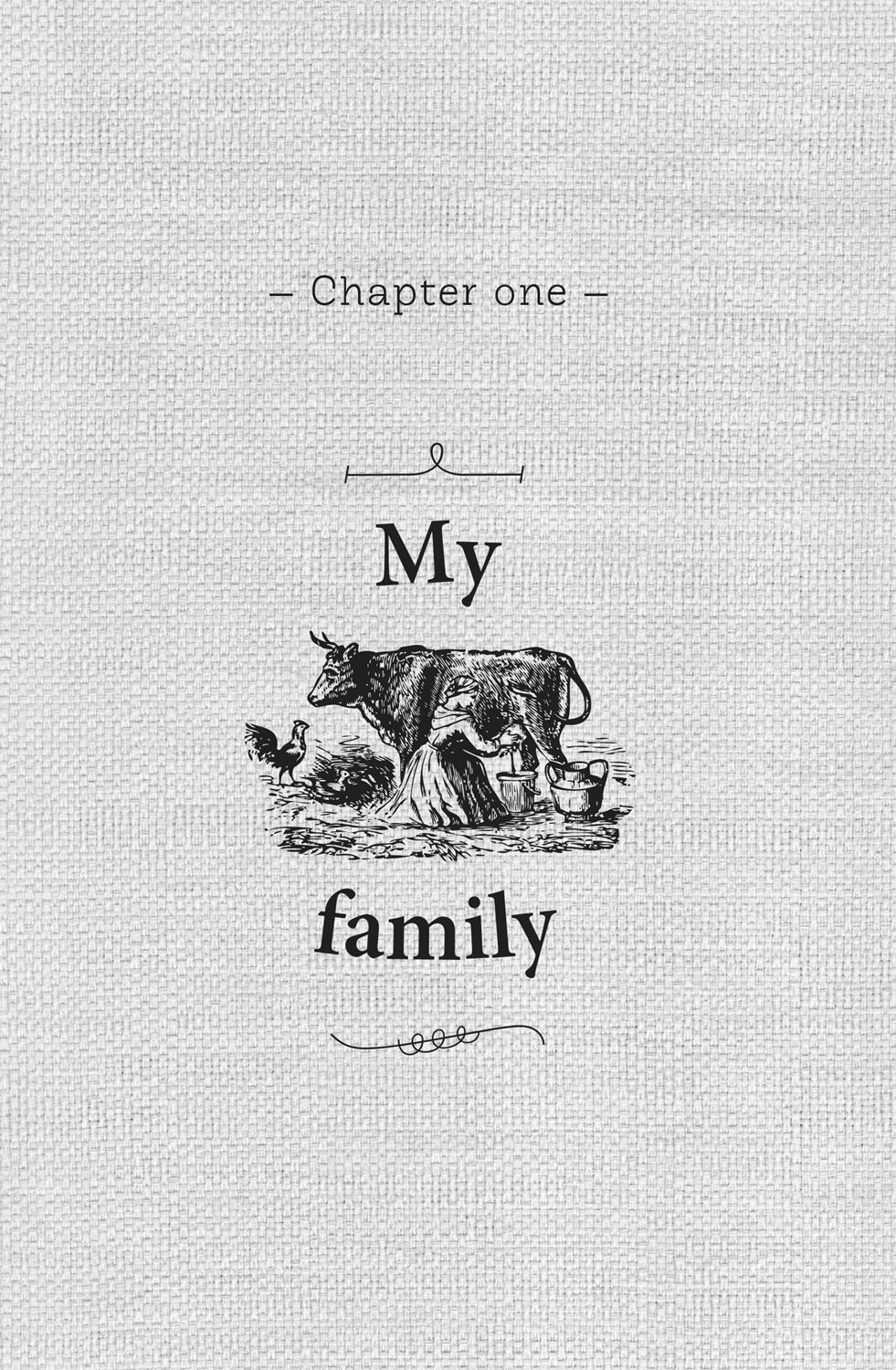WHEN LISA HARPER RETURNED TO HER FAMILYS FARM AT THE HEAD OF REMOTE MAHAU SOUND, AFTER YEARS OVERSEAS WORKING AS A SCIENTIST, SHE SHOWED ALL THE PLUCK OF THE EARLIER GENERATIONS OF WOMEN IN HER FAMILY.
The isolation wasnt going to deter her from starting a new business. After all, her grandmother and mother were made of stern stuff, managing running stock, commercial fishing, operating a guest house, home-schooling children and getting on and off the property by boat or along a perilous road.
Eight years later Lisa was an award-winning traditional cheesemaker and a Nuffield Scholarship winner when she had to make a major decision to wrench herself from the Marlborough Sounds to secure her future.
The Wharf at Waterfall Bay is a story of enterprise and determination, of a young woman determined to fulfill her dream.
This book is dedicated to
Rural Women New Zealand
When Rural Women New Zealand launched the nationwide Enterprising Rural Women Awards in 2009, we anticipated hearing and reading about a wide range of interesting and innovative small businesses.
Knowing that there is a wealth of knowledge and ambition in country valleys and small provincial towns, we wanted to provide an opportunity for rural women with their own business enterprise to shine. And shine they have.
Over the past five years, the Enterprising Rural Women Awards have attracted entrants from Northland and Southland, to Great Barrier and Waiheke Islands and the Marlborough Sounds. Their entrepreneurial talents have been equally wide-ranging. We have learnt that beauty-treatment spas have a strong foothold in rural New Zealand, that farm-based tourism is a growing and lucrative market, and that women of all ages have ideas and the courage to invest in those ideas to supply a product or service for profit.
The range of products has been impressive and diverse. Wool clothing, homeopathic animal remedies, trees and plants, gourmet meats and working-dog equipment manufacturers, to name just a few, have all received recognition and profile worthwhile acknowledgement for women who have had to overcome isolation from markets and communication challenges to get started and keep making progress.
The Enterprising Rural Women Award is a celebration, and none more so than of our 2011 winner, artisan cheesemaker Lisa Harper. Lisa was quickly identified by the judging panel as an outstanding ambassador for successful rural women in business. Additionally, her company, Sherrington Grange, met our criteria for community involvement and environmental best practice.
There was a connection to our organisation, too: in the 1980s Lisas grandfather, James Duncan, was contracted to evaluate the future of the Womens Division of Federated Farmers, as Rural Women New Zealand used to be known.
When she arrived for the final judging of the 2011 Enterprising Rural Women Awards, Lisa brought with her an impressive array of credentials, and an equally impressive selection of her handmade, artisan cheeses. The Rural Women New Zealand judges soon agreed that Lisa would be an outstanding winner of the award. Her calm confidence and engaging style delivered that day an eye-popping summary of facts and personal stories: her love of the land, her commitment to family and her attention to detail in both her academic and business careers. Eye-popping was also the reaction to some of her vine-leaf-wrapped cheeses, which, once freed from their twine ties, leapt onto our table with aroma and taste.
Lisa Harper is a rural woman of substance and style. And so is her story. Her future is bright. She will make sure of it.
Liz Evans
National President, Rural Women New Zealand Chair, Enterprising Rural Women Award judging panel June 2013
Mahau Sound, just before dawn. In this arm of Pelorus in the Marlborough Sounds, its millpond calm. Its not always so tranquil, though. When the wind tips to the northwest, it can rip straight up the Sound, lashing up whitecaps and shredding trees.
But compared with the greater Pelorus Sound, Mahau is mostly benign, a shallow body of water that ends in an estuary rich with flounder, oysters, mussels and other goodies my backyard deli. When the sun rises, the water takes on the pale, greyish-green of a Crown Lynn china glaze, utterly different to the hard emerald of the larger sound. On winter days, when the air is much colder than the water, great clouds of vapour rise from the surface.
Im walking down through the long grass to find the cows and goats to wake them up for milking. Out here you get a dawn chorus, and the bellbirds and thrushes are in full voice. Im humming to myself, half-asleep like the animals.
Ive got a torch but I barely need to look down, Ive made this trek so many times. So Im sleepwalking, lost in thought about what comes next, running through endless lists in my head.
Its not the next hour Im concerned with a bit like this walk, I know exactly how that will play out. The cows will be hard to shift, as always. To wake a cow you poke it in the rump gently with your gumboot. But if Im in a hurry, as I tend to be on Sunday mornings with the farmers market waiting, I will resort to sitting on them, muttering, Im not getting off until you get up.
The goats will be like sleepy children. Theyll come out of the shed and will form a long line behind me in hierarchical order, boss goat first and lowest goat last. If I stop suddenly, they will bump into each other a multi-goat pile-up.
Its not the next hour Im pondering, or even the next few hours, which like any other morning will involve pasteurising milk and making cheese. Its the next six months, the next six years.
Everything is about to change; a major life shift. So Im making mental lists as I walk through the paddocks, ticking off what still needs to be done. Im thinking, too, about departures. After 30 years at Mahau, Im having to contemplate what it will feel like to leave this place I love.
The Marlborough Sounds saved my life. I was a sickly child, and I had more than one brush with death before my family made the decision to move to Mahau for the good of my health. And when I say the place saved me, thats no exaggeration.
My early childhood was spent north of Wellington, on a small lifestyle block. My family was my mother, my younger brothers, Robert and Hamish, and my maternal grandparents, James and Peggy Duncan. My father wasnt in the picture. He and my mother had divorced when she was expecting Hamish, and Ive met him only three times since.
You take it for granted how you are raised as a child, and it has only been in recent years that I have come to realise that I have a rather unusual family. For a start, we were three generations living under one roof. Thats possibly more common in the farming world, where people work until they drop, but you dont see it much today elsewhere. My people have never done old folks homes. We have always had the older generation with us. It will be the same with my mother when the time comes.

